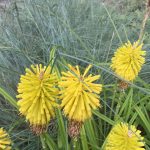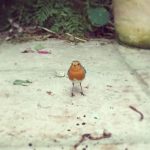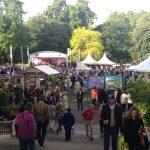I’m writing this because discussions online this week have kept me up all night thinking about them. I’ve been awake for hours and am now writing this at 5am on Saturday morning on my iPhone. You could say I should get out more but … well, you know. Because I can’t meet anyone to talk about it and Twitter is about as useless as a broken phone signal for in depth discussion I’ve written the below. I don’t have answers, only questions and suggestions. I’d be grateful for anyone who can reassure me or just share thoughts, from all viewpoints. Please know I’m coming at this from a friendly and open angle, which may not come across in text alone. It’s healthy for people to disagree sometimes.
The past week has seen two discussions erupt linked to how humans coexist on planet earth alongside wildlife. We’re at a crisis point, humans are wiping out all nature more rapidly now than any point in history. There’s a genuine sense that an increased number of people finally comprehend this compared to say, a decade ago. Both discussions ask us to believe in challenging methods of protecting nature, so understandably things became quite heated. On Twitter and Instagram at least.
First, farmers of a crop called sugar beet successfully lobbied the Government to use Neonicotinoid pesticides on the crop (neonics for short). It’s under the title of ‘emergency use’ but for all intents and purposes is the reversal of a pesticide ban on neonics made only two years ago in 2018. Extending its use despite everyone agreeing they were bad enough to ban. A handful of other European countries have done the same thing.
It came as much of a surprise to most that such a reversal would happen that quickly, as it did that the UK grows such large quantities of the crop, which produces almost half of the sugar we use. Who knew.
Neonics, are systemic pesticides with staying power. They live in the system of any plant that absorbs them killing everything that feeds on the plant. The focus here is on bees and aphids and we’re assured the beets aren’t left to flower, protecting pollinators. Aphids are the main target because these sap sucking insects pass sap dwelling viruses from one plant to another. In the case of sugar beets, the Yellow Virus quickly renders the entire crop unusable. But bees and aphids aren’t the only insects that matter, they all do, and even if they don’t flower, other leaf and sap eating insects will be killed. Residues of the insecticide will be washed into soils and rivers. It can be absorbed into other plants that then do affect pollinators such as butterflies.
Tom Clarke, a sugar beet farmer, helped to explain a farmer’s point of view in an excellent and clear thread on Twitter which shows how much farmers do care and how much pressure they are under. We need farmers to feed us all and they do a fantastic job, making it easy to sympathise with Tom and other farmers explaining the decision online. It was fantastic and very welcome to see farmers doing this when in the past farming hasn’t felt so open.
The second discussion that erupted at the end of the week was around an article by Alex Morss on The Guardian around conservation of wild animals and their habitats in Africa. Alex rightly quoted scientists pointing out the fact that managed hunting reserves can in some instances help conservation efforts. It gives local people in those areas a career that covers the cost of managing the land. It’s also in their interests to ensure enough lions, elephants and rhinos (for instance) breed and live wild in that land for people to hunt. Stopping this practice can, as the article points out, have a detrimental effect as the land could be turned over to agriculture, which is worse. I’ve seen this perspective discussed on and off over the last 10-15 years and this sums it up well, I’m glad Alex wrote it and the scientists quoted given a voice.
Both discussions were labelled by some as complex, that we should listen to the science and data. While I agree that we should of course always listen to science and data and be led by it, neither issue is that complex. Nuanced, but perfectly understandable with a bit of research, reading and listening.
Standing out to me was that the data in both instances was one sided. The presented evidence shows that using neonics temporarily and allowing some hunting are the best solutions. It has me wondering, what about the other solutions. Life has taught me in most situations there is more than one way to not skin a wildcat.
If neonics weren’t allowed temporarily, the crops would fail. The UK would, it’s suggested, instead buy its sugar from other countries with lower standards than ours. The alternative farmers want for the sake of a year or two is to release neonics to protect the industry. But then we’ve lowered our own standard with no date for when resistant crops can be bred, if at all, no promise they will work and no promise they will continue to work.
In the meantime insects suffer at a time when their numbers are so massively depleted some are in danger of extinction. This has a knock on effect for the plants and other animals that rely on them.
The question is when do we draw the line? For many of us the line was 2018 when neonics were banned.
An alternative to allowing neonics is to keep the ban in the UK and the Government to step in to also ban any lower standard sugar entering the country. There would be a sugar shortage. By now I would have assumed that would be planned for, industries adapting to less of certain products for a year or two while sugar beet is taken off the crop cycle for the virus to abate. Or perhaps even indefinitely. Perhaps the sugar beet industry has had its day and we should grow something else. Dave Goulson, a professor specialising in insects, wrote this great blog pointing out that we’re killing wildlife to protect a crop that’s killing us.
The Government could support farmers during a shortfall in a temporary loss of sugar beet or help make the bigger transition to something else. Instead it feels as though nature must come second for profit.
Nature coming second for profit is at the heart of hunting wild animals like lions. Except lions benefit in the end because the landowners need them to sell hunting packages – shot lions excluded. I understand this, it makes total business sense, I even wonder if hunting is that bad if habitats are large enough, stable enough and our footprint is small enough.
But is it the only solution? I feel it isn’t. I would dearly love to go to Africa and shoot every wild animal I see, with my camera. One day I dream of being able to do this. Is tourism really of lower value than hunting tourism? I find it hard to believe but perhaps it is. If hunting lions is given the moral ‘all clear’ will the park managers keep the same conditions to meet demand?
My head tells me people should only hunt what they eat, not for joy because what does it make them and us for allowing it. And that using neonics at a time of wildlife crisis doesn’t seem right either. Some science tells us otherwise. My head also tells me science is a multifaceted beast and some data and evidence doesn’t always tell the full story. Especially when we don’t have all of the data for multiple possibilities.
Both of these issues are about land and how the world’s growing population of humans manages to live on it alongside wildlife as we are squeezed closer together. Is there enough room for us all? We’re finding out.
What I want – what I have always wanted from a young boy until now, and I still think young me was right – is for all Governments to designate a large percentage of the planet as wilderness. In some countries we’ve gone too far and need to give back land to wilderness to redress the balance, the UK a good example. It’s for another thought piece but such an action would help toward balancing climate change. All it would take is for Governments around the world to do this, which requires us to ask them to do it.
I suspect we’ll find we need wilderness as much as the wildlife.
I’m not a scientist or a data analyst but I’ve spent over twenty years analysing data and working with and listening to scientists and data analysts to inform businesses and quite often various different Governments. I’ve been reading about and thinking about causes and solutions for our dying wildlife since I was five, or thereabouts, and very little so far seems to be working.




Trophy hunting in Africa? Not convinced that does much for conservation. In South Africa lions are bred for canned lion hunting (shooting fish in a barrel?) Also the bones are used as ‘tiger’ bones in Traditional Chinese Medicine. If you are breeding lions for bones … no need to feed them much, terrible animal cruelty.
And another Guardian article pointed out, with COVID the hunters can’t travel, so excess animals are being culled, and staff laid off. Captive bred lions have nothing to do with conservation.
Cape Town is currently choosing more development over living in peace with baboons on the urban edge. Who needs wild and free animals??
Gardeners on Facebook are more interested in poisoning caterpillars, than nurturing insects. Sob.
Thanks for the comment Diana, it’s great to hear you perspective direct from South Africa – sorry to reply so late to you.
I’m dismayed about the use of neonics being allowed for sugar beet. Will it mean that the industry relies on them rather than searching for alternatives? I live in Suffolk and see so many fields of sugar beet, grown for the nearby sugar-processing plant. These fields must affect a huge number of insects – how long will the effects on their populations last, even after the neonics are withdrawn? (Assuming they are.)
Meanwhile, as an ordinary gardener, I’m trying to make my little patch as much of a home for wildlife as I can – but it’s the tiniest drop in the most massive ocean.
So many questions with no easy answers – but we must keep talking about it and take whatever action we can. (And that makes me realise that I must really cut back on sugar!)
Ha yes, if we consumed less sugar it would help on this instance but what ant the next crop. I’m dismayed too. Farmers claim it’s an emergency use two years after the ban. One would have assumed they would have planned for such an emergency alternative ten years ago.
Hello Jack,
Life is truly out of balance. I definitely relate to all that you’re saying. I’d also like to see a reduction in the human population, stopping the need by some for constant land development, preserving indigenous land-based economies, etc. I hate to hear that the UK has allowed the bee-killing chemical (neonics) to be used again.